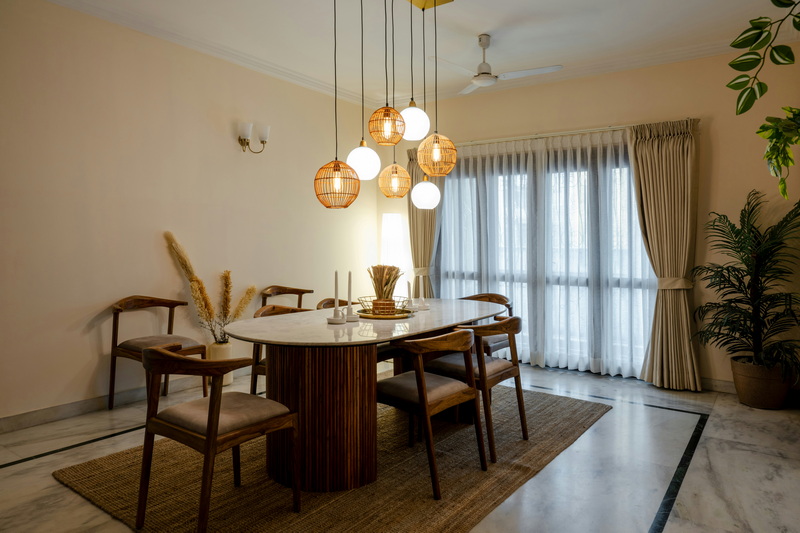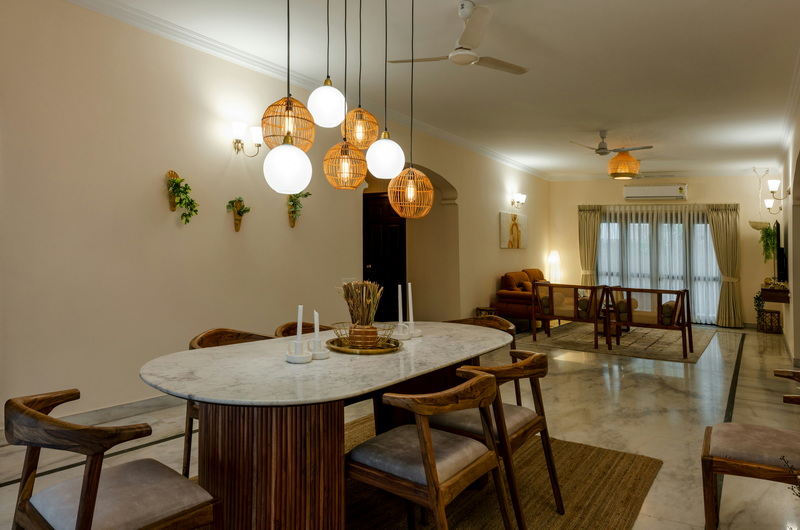English 




Views: 222 Author: Astin Publish Time: 2025-03-03 Origin: Site



Content Menu
● Introduction to Aluminum Furniture
● Thermal Conductivity of Aluminum
● Factors Influencing Heat Absorption
● Managing Heat in Aluminum Furniture
● Advantages of Aluminum in Hot Climates
● Comparison with Other Materials
● Design Considerations for Aluminum Furniture
● Innovative Solutions for Heat Management
>> 1. Why Does Aluminum Furniture Get Hot in the Sun?
>> 2. How Can I Keep Aluminum Furniture Cooler?
>> 3. Is Aluminum Furniture Suitable for Hot Climates?
>> 4. Does the Color of Aluminum Furniture Affect Its Temperature?
>> 5. How Does Aluminum Compare to Other Materials in Terms of Heat Retention?
Aluminum furniture is a popular choice for outdoor settings due to its durability, lightweight nature, and resistance to corrosion. However, one common concern is whether aluminum furniture gets hot in the sun. This article will delve into the thermal properties of aluminum, how it behaves under sunlight, and provide tips on how to manage its temperature.

Aluminum furniture is widely used in gardens, patios, and other outdoor spaces. Its popularity stems from several key advantages:
- Durability: Aluminum forms a protective oxide layer when exposed to air, making it resistant to corrosion and environmental degradation.
- Lightweight: Aluminum furniture is significantly lighter than alternatives like wrought iron, making it easier to move and reposition.
- Style and Versatility: Aluminum furniture comes in various styles and can be powder-coated in different colors, offering aesthetic appeal and flexibility in design.
Aluminum is known for its high thermal conductivity, which means it efficiently absorbs and transfers heat. This property allows aluminum to heat up quickly when exposed to direct sunlight but also enables it to cool down rapidly once removed from the sun's rays. Unlike materials with lower thermal conductivity, such as wood or resin, aluminum does not retain heat for long periods, making it less uncomfortable to use after being in the shade for a short time.
Several factors influence how hot aluminum furniture becomes in the sun:
- Color: Darker colors absorb more heat than lighter ones. For instance, black aluminum furniture will get hotter than white aluminum furniture because darker colors absorb sunlight more effectively.
- Finish: The type of finish on the aluminum surface affects heat absorption. A matte or textured finish can dissipate heat better than a glossy one.
- Exposure: The duration and intensity of sunlight exposure significantly impact how hot the furniture becomes. Prolonged exposure to direct sunlight will result in higher temperatures.
- Environmental Conditions: Weather conditions such as humidity and wind can also affect how hot the furniture feels. For example, in humid environments, the perceived temperature may be higher due to reduced heat dissipation.
While aluminum furniture does get hot in the sun, there are several strategies to manage its temperature:
- Cushions and Covers: Using cushions or covers can provide a barrier between the metal and your skin, making the furniture more comfortable to use.
- Shade: Placing furniture under a parasol, pergola, or awning can reduce direct sun exposure and keep the furniture cooler.
- Timing: Using the furniture during less intense sun periods, such as mornings or late afternoons, can also help.
- Maintenance: Regularly cleaning the furniture can help maintain its finish and ensure it continues to dissipate heat effectively.
Despite the potential for aluminum furniture to get hot, it remains a superior choice for hot climates due to its durability and resistance to environmental factors:
- UV Resistance: Aluminum does not degrade under UV rays, maintaining its appearance over time.
- Weather Resistance: It withstands rain, humidity, and extreme temperatures without structural compromise.
- Low Maintenance: Aluminum requires minimal maintenance compared to other materials, making it ideal for busy homeowners.
When comparing aluminum to other materials used in outdoor furniture, several factors come into play:
- Wood: Wood furniture can be more comfortable in direct sunlight because it absorbs less heat, but it requires more maintenance and can degrade over time.
- Wrought Iron: Wrought iron is durable but heavy and can also get hot in the sun. It is less resistant to corrosion than aluminum unless properly coated.
- Plastic and Resin: Plastic and resin furniture are generally cooler to the touch than metal but may degrade faster under UV exposure.

When selecting aluminum furniture, consider the design elements that can enhance comfort and functionality:
- Frame Thickness: Thicker frames can provide more stability but may retain heat longer.
- Ventilation: Designs with built-in ventilation, such as slatted seats or backs, can improve airflow and reduce heat retention.
- Accessories: Adding accessories like armrests or footrests can enhance comfort and usability.
Innovative technologies and materials are being developed to improve the thermal comfort of aluminum furniture:
- Heat-Resistant Coatings: Special coatings can be applied to reduce heat absorption and improve the furniture's thermal comfort.
- Integrated Cooling Systems: Some designs incorporate cooling systems, such as built-in misting systems, to keep furniture cooler.
- Smart Materials: Researchers are exploring smart materials that can adapt to environmental conditions, potentially reducing heat retention in aluminum furniture.
Aluminum furniture does get hot in the sun due to its high thermal conductivity, but it also cools down quickly once removed from direct sunlight. By choosing lighter colors, using cushions, and positioning furniture in shaded areas, you can enjoy the benefits of aluminum furniture while minimizing its heat-related drawbacks. Its durability, low maintenance requirements, and aesthetic appeal make it a versatile choice for outdoor settings.

Aluminum furniture gets hot in the sun because of its high thermal conductivity, which allows it to efficiently absorb and transfer heat. This means it heats up quickly when exposed to direct sunlight but also cools down rapidly once shaded.
To keep aluminum furniture cooler, use cushions or covers to create a barrier between the metal and your skin. Place the furniture in shaded areas or use parasols and awnings to reduce direct sun exposure. Additionally, using lighter-colored finishes can help reflect sunlight and heat.
Yes, aluminum furniture is suitable for hot climates. It is durable, resistant to UV rays, and maintains its structural integrity despite high temperatures and humidity. Its lightweight nature also makes it easy to reposition into shaded areas if needed.
Yes, the color of aluminum furniture affects its temperature. Darker colors absorb more heat than lighter ones, so choosing a lighter finish can help keep the furniture cooler in direct sunlight.
Aluminum has a higher thermal conductivity than many other materials used in outdoor furniture, such as wood or resin. While it heats up quickly, it also cools down faster than materials with lower thermal conductivity, making it less uncomfortable to use after being in the shade.
[1] https://www.lazysusanfurniture.co.uk/blogs/news/does-an-aluminium-garden-table-and-chairs-get-hot-in-the-sun
[2] https://blog.csdn.net/weixin_40289064/article/details/79669930
[3] https://www.lazysusanfurniture.co.uk/blogs/news/can-you-use-metal-sun-loungers-in-a-hot-climate
[4] https://blog.csdn.net/m0_52127604/article/details/124861291
[5] https://palmcasual.com/why-aluminum-furniture-is-perfect-for-atlantas-weather/
[6] https://www.sohu.com/a/463063878_120930312
[7] https://californiapatio.com/faq/i-live-in-a-sun-predominate-area-and-my-furniture-is-exposed-to-high-temperatures-will-my-furniture-be-too-hot-to-use-and-what-material-is-recommended/
[8] https://blog.csdn.net/qq_34917728/article/details/125122327
Top Aluminum Furnitures Manufacturers and Suppliers in Czech Republic
Top Aluminum Furnitures Manufacturers and Suppliers in Poland
Top Aluminum Furnitures Manufacturers and Suppliers in Belgium
Top Aluminum Furnitures Manufacturers and Suppliers in Finland
Top Aluminum Furnitures Manufacturers and Suppliers in Denmark
Top Aluminum Furnitures Manufacturers and Suppliers in Greece
Top Aluminum Furnitures Manufacturers and Suppliers in Portugal
Top Aluminum Furnitures Manufacturers and Suppliers in Austria
Top Aluminum Furnitures Manufacturers and Suppliers in Norway
Top Aluminum Furnitures Manufacturers and Suppliers in Sweden
